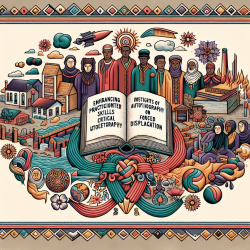Introduction
The global health community continuously seeks ways to improve pandemic preparedness, especially in light of past experiences with influenza outbreaks. A recent study titled "Key Ethical Issues Discussed at CDC-Sponsored International, Regional Meetings to Explore Cultural Perspectives and Contexts on Pandemic Influenza Preparedness and Response" provides valuable insights into the ethical considerations that must be addressed in such efforts. This blog will explore the key outcomes of this research and how practitioners can enhance their skills by implementing these findings.
Key Ethical Considerations
The study highlights several ethical challenges that are critical to pandemic influenza preparedness, as identified by the World Health Organization (WHO). These include:
- Transparency and Public Engagement: The importance of making information freely available and engaging the public in decision-making processes was widely accepted. However, cultural differences can influence how transparency is perceived and implemented.
- Allocation of Resources: There is no "one size fits all" approach to resource allocation. Economic, cultural, and contextual factors must be considered to ensure fair distribution.
- Social Distancing: While recognized as a vital tool to limit disease transmission, social distancing measures can be challenging to enforce due to socio-economic and cultural factors.
- Obligations to and of Healthcare Workers: Healthcare workers face competing obligations, and governments have a responsibility to support them with appropriate training and equipment.
- International Collaboration: Despite challenges such as political differences and resource disparities, international collaboration is crucial in combating global health threats.
Implementing Research Outcomes
Practitioners can enhance their skills and preparedness by integrating the research outcomes into their practice. Here are some steps to consider:
- Engage with communities to understand their cultural perspectives and involve them in the decision-making process.
- Develop flexible resource allocation strategies that consider local economic and cultural contexts.
- Promote transparency and public engagement by ensuring that information is accessible and understandable to all community members.
- Provide healthcare workers with the necessary training and equipment to fulfill their duties while ensuring their safety and well-being.
- Foster international collaboration by building networks and sharing best practices across borders.
Encouraging Further Research
While the study provides a solid foundation for understanding ethical considerations in pandemic preparedness, further research is encouraged to explore these issues in greater depth. Practitioners can contribute to this body of knowledge by documenting their experiences and sharing insights with the broader community.
To read the original research paper, please follow this link: Key Ethical Issues Discussed at CDC-Sponsored International, Regional Meetings to Explore Cultural Perspectives and Contexts on Pandemic Influenza Preparedness and Response.










